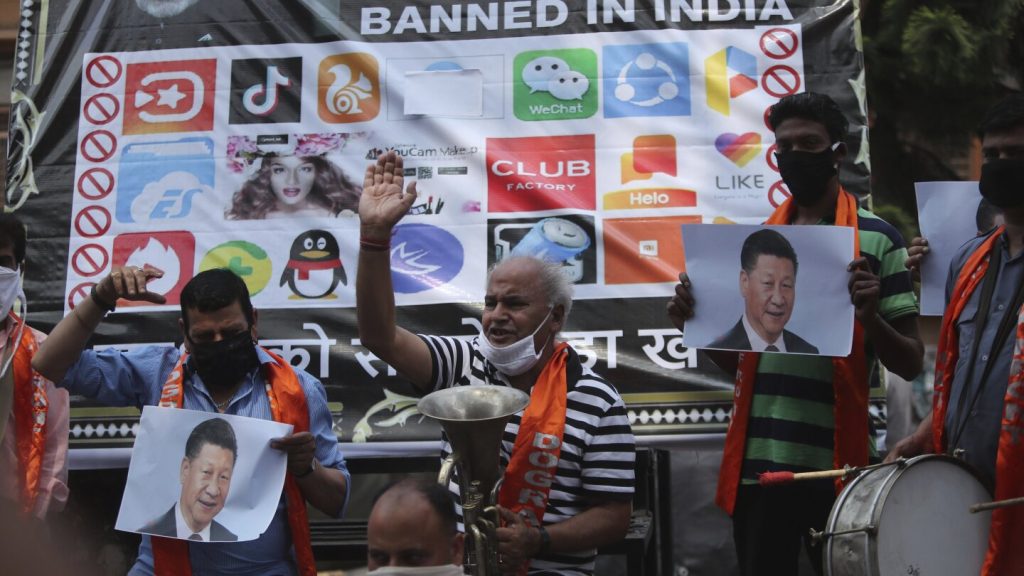The popular Chinese app TikTok is facing potential expulsion from the United States, as a measure to outlaw the video-sharing platform has gained congressional approval and is awaiting President Biden’s signature. This comes after India banned the app nearly four years ago, following a military clash between Indian and Chinese soldiers. The ban was motivated by privacy concerns and the perceived threat to India’s sovereignty and security posed by Chinese apps. The move received widespread support in India, where sentiments against Chinese companies had been growing following the deadly confrontation on the India-China border.
In response to the ban in India, which had approximately 200 million TikTok users at the time, other platforms such as YouTube and Instagram swiftly introduced features to fill the gap left by TikTok. These platforms mimicked the short-form video creation that TikTok was known for, and quickly captured the market that TikTok had vacated. Despite the unique hyperlocal content that TikTok offered, most content creators and users in India have since moved on to other platforms such as Instagram, where they have managed to build a following and continue creating content. While some users miss the experience of TikTok, they have found success on alternative platforms.
The legislation in the United States to outlaw TikTok gives ByteDance, the app’s parent company, nine months to sell the platform, with an additional three months if a sale is in progress. If a sale fails to materialize, TikTok will be banned in the country. This process, if it proceeds, could take at least a year before a ban is enforced, with potential court challenges that could prolong the timeline. The situation in the U.S. differs from India’s swift ban in 2020, as TikTok and other companies were given opportunities to address concerns around privacy and security before the ban became permanent.
Digital policy expert Nikhil Pahwa highlights the differences between India and the U.S. in dealing with the TikTok ban, citing the stronger free speech protections under the First Amendment in the United States. Pahwa emphasizes the need for countries to assess their reliance on Chinese companies and develop strategies to reduce this dependency, as Chinese apps may pose national security risks due to potential ties to China’s intelligence and cybersecurity laws. He suggests that democratic countries should have different regulations compared to authoritarian regimes, where companies can operate as extensions of the state, raising concerns about data security and national sovereignty.
In addition to India and the United States, TikTok has also faced bans and restrictions in other countries, including Pakistan, Nepal, Afghanistan, and several European nations. Pahwa warns about the risks associated with Chinese apps operating in the interest of China’s security, creating a situation of distrust and posing national security threats to other countries. He advocates for a proactive approach to regulating these apps and reducing dependence on Chinese technology to mitigate potential security risks. As the debate over TikTok’s future continues in the U.S., it raises broader concerns about data privacy, national security, and the role of Chinese tech companies in the global digital landscape.


